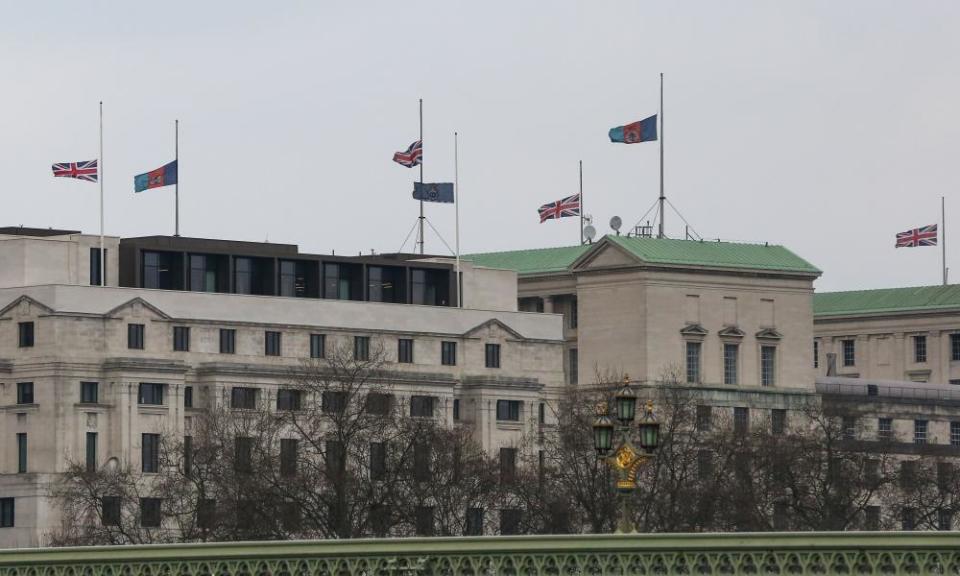MI5 launches review of whether it could have stopped Khalid Masood

Britain’s domestic intelligence agency MI5 has embarked on an internal review of whether it could have stopped the Westminster attacker.
The agency had investigated Khalid Masood in the past in relation to concerns about violent extremism but he had since had dropped off its radar.
The agency will face questions, as it did after the London bombings in 2005 and the murder of the soldier Lee Rigby in 2013, about why the attacker slipped through the net.
But the security agencies have repeatedly warned that it is difficult to guard against the kind of crude, unsophisticated single-person attack mounted by Masood. When more than one person is involved, there is at least the chance of picking up a hint of the plan through informers or electronic surveillance.
An MI5 team is looking at what lessons can be learned from the Masood case and whether it made the right decisions not to have him under surveillance.
The agency is building a detailed file on Masood’s background, recreating his movements over the last few weeks, and will analyse interviews with his associates.
Theresa May, in the Commons, disclosed that Masood had been investigated by MI5 and said the agency concluded “he was a peripheral figure and the case is historic … there was no prior intelligence of his intent or the plot”.
The police and security services monitor an estimated 3,000 Britons, mainly Islamists, regarded as capable of domestic terrorism. Of these, about 500 are the subject of active investigations by the police and MI5. Of the 500, only a limited number are the targets of physical surveillance, which is labour intensive, normally requiring a score or more people.
But the attacker was regarded as so peripheral he was not even on the list of 3,000.
The parliamentary intelligence and security committee conducted inquiries after the London bombings and Rigby murder and, though the hearings were often uncomfortable for the agency, it was exonerated on both occasions.
Dominic Grieve, chairman of the committee, appeared sympathetic to the security agencies when speaking in the Commons on Thursday, saying that, given the scale of the threats, it was nothing short of a miracle that the UK had escaped so lightly over the years.
The intelligence analysis group Soufan, founded by the former FBI agent Ali Soufan, in a commentary on the London attack, wrote: “Overloaded threat matrices make the detection and disruption of unsophisticated attacks extremely difficult, even when the attacker was previously known to authorities; the threat of similar attacks will remain high for the foreseeable future.”
Masood was not part of any current investigation by the security services but was someone that cropped up in an MI5 investigation years ago. When an attack happens, the expectation at MI5 is that, if they are doing their job properly, the name will be in the agency’s record somewhere – as was the case with Masood – given its job is to identify people with extremist views.

 Yahoo News
Yahoo News 